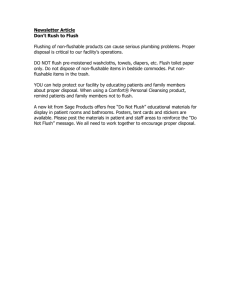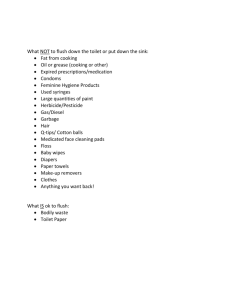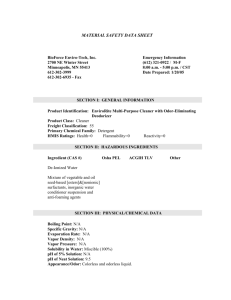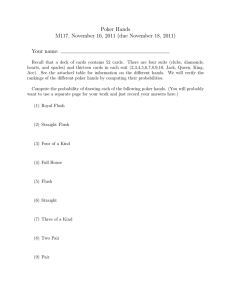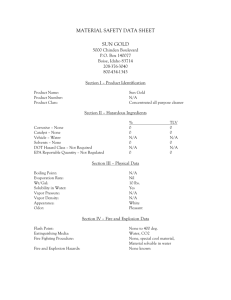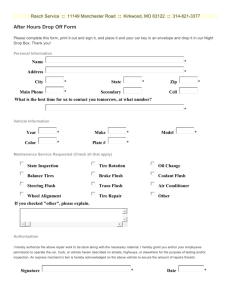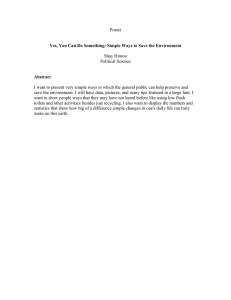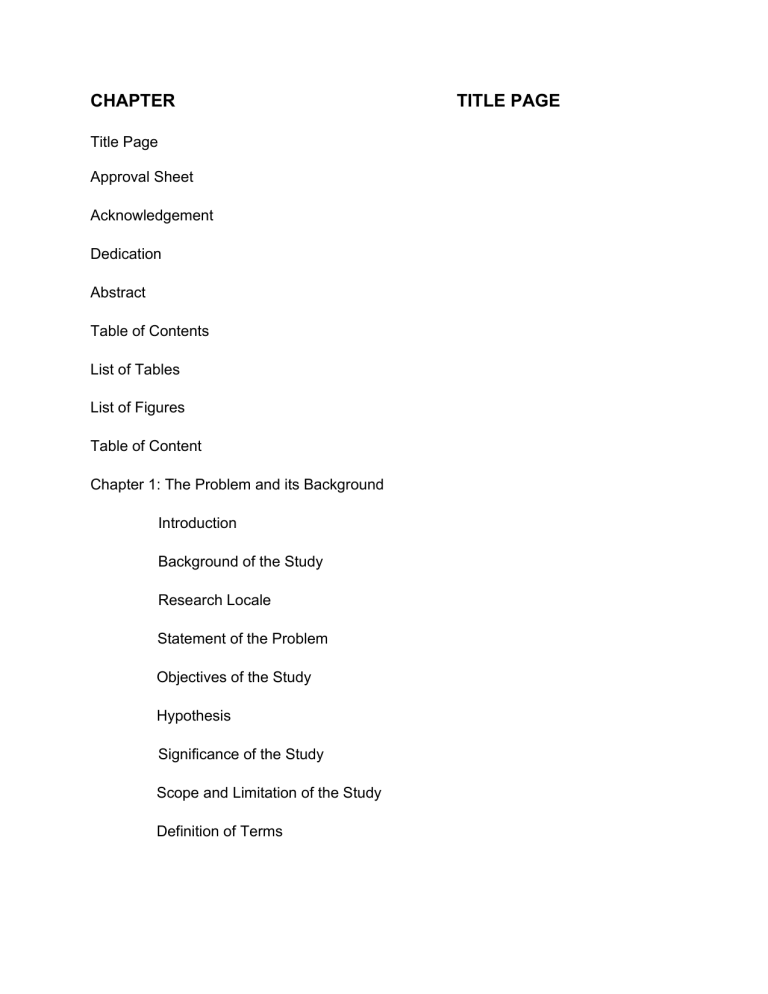
CHAPTER Title Page Approval Sheet Acknowledgement Dedication Abstract Table of Contents List of Tables List of Figures Table of Content Chapter 1: The Problem and its Background Introduction Background of the Study Research Locale Statement of the Problem Objectives of the Study Hypothesis Significance of the Study Scope and Limitation of the Study Definition of Terms TITLE PAGE Chapter 2: Review of Related Literature and Studies Foreign Literature Local Literature Foreign Studies Local Studies Theoretical Framework Conceptual Framework Chapter 3: Research Methodology Research Design Participants of the Study Instrumentation Validation of the Research Instrument Data Gathering Method Ethical Considerations Statistical Treatment of Data Chapter 4: Presentation, Analysis and Interpretation of Data Chapter 5: Summary, Conclusions and Recommendations Summary Findings Conclusions Recommendations Bibliography (APA Format) Books Journals (including monographs and other research publications) Periodicals Unpublishes Thesis On-line Sources Appendices Questionnaire (with cover letter) Request Letter to conduct survey Documents, memoranda, data/figures (if any) Sample Statistical computation or raw data Curriculum Vitae Paper: Standard size (8.5 x 11" in the U.S.) Page Margins: 1" on all sides (top, bottom, left, right) Font: 12-pt. easily readable (Arial) Spacing: Double-spaced throughout, including captions and bibliography Alignment of Text: Flush left (with an uneven right margin) Paragraph Indentation: 1/2" (or five spaces) End of Sentence: Leave one space after a period unless your teacher prefers two. Page Numbers: On every page, in the upper right margin, 1/2" from the top and flush with the right margin put your last name followed by the page number. Title Page: Only if your teacher requests one. Instead, on the first page, upper left corner place on separate lines, double-spaced: Your name Teacher's name Course name or number Date Underneath, center the title using regular title capitalization rules and no underline. Start the report immediately below the title. Tables & Illustrations: Place tables and illustrations as close as possible to the text they refer to. A table is labeled Table and given a number (e.g., Table 1). The table label and caption or title appear above the table, capitalized like a title, flush left. Sources and notes appear below the table, flush left. Photos, graphs, charts or diagrams should be labeled Figure (usually abbreviate Fig.), and assigned a number (e.g., Fig. 1). The label, title, and source (if any) appear underneath the figure, flush left, in a continuous block of text rather than one element per line.
